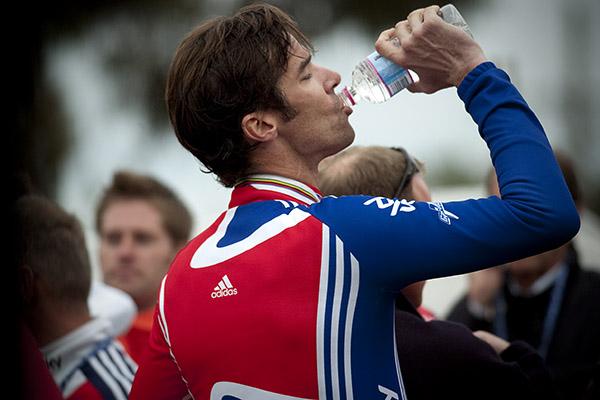BOA and WADA heading for court?
Ruling on US 400m runner could lead to turnover of David Millar's ban
The latest race content, interviews, features, reviews and expert buying guides, direct to your inbox!
You are now subscribed
Your newsletter sign-up was successful



Great Britain’s David Millar has been given further hope in his bid to compete at the London 2012 Olympics, after the World Anti-Doping Agency (WADA) declared that the British Olympic Association’s (BOA) lifetime bans for drug offences are “non-compliant” with its code. Millar issued a statement last month after the court of arbitration for sport (CAS) declared that athletes who have completed doping suspensions could now participate in future Olympics. WADA have now thrown their weight behind that declaration and have singled out the BOA for contrarily issuing lifetime bans to British athletes found guilty of doping.
The BOA have responded by saying that the dispute needs to be taken back to CAS in Lausanne, Switzerland, which could now be the scene for a tense legal battle within the next three months. WADA’s stance has firmed following a successful appeal last month by reigning Olympic 400m champion LaShawn Merritt against the International Olympic Committee’s (IOC) Rule 45 – which prevents any athlete with more than a six-month ban from competing at the following Olympic Games.
“We decided that we should take prudent steps to deal with the question of whether the BOA was compliant with our code,” said WADA director general David Howman. “The CAS ruling on IOC’s rule 45 went the way it did, establishing that the Osaka Rule was a sanction, not an eligibility issue. When we read the CAS decision on the IOC rule it became reasonably obvious to those that have an ounce of sense that the IOC was struck down because it has an extra sanction rather than an eligibility issue. The BOA rule falls into the same category.”
BOA chairman Lord Moynihan launched an impassioned defence of its methods and said that it would fight any challenges to its code and rulings. “In light of this development, at a meeting today the BOA board agreed to inform WADA that it will vigorously defend the interests of clean athletes by seeking a hearing before CAS to address the enforceability of its selection policy, and bring clarity and closure to this issue,” he said.
“Above all, the BOA hopes that raising this issue in this way will ensure the world of sport has an open and honest debate about the status and future of the anti-doping movement.”
Millar, who is the only British rider to have worn all jerseys at the Tour de France and the only Briton to wear the leader’s jersey in all of the grand tours, was banned from cycling for two years in 2004 for admitting to doping offences. Under current BOA rules, this qualifies him for a lifetime ban from Olympic competition. He has rebuilt his career and reputation after returning from suspension, and he and the sprinter Dwain Chambers could be the most high profile beneficiaries if the challenge to the BOA’s ruling is successful.
The latest race content, interviews, features, reviews and expert buying guides, direct to your inbox!

